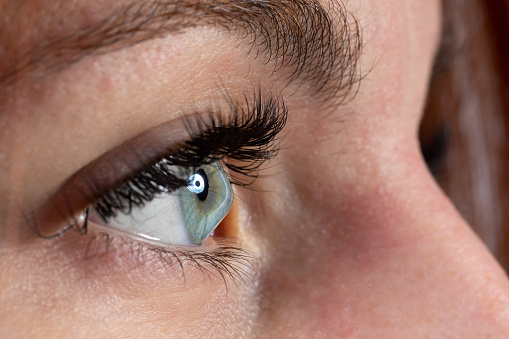Keratoconus is a condition where the cornea thins and bulges forward into a cone shape. This change in the cornea’s shape causes light rays to be misfocused, resulting in blurry and distorted vision. This can make daily tasks like reading or driving difficult.
Keratoconus

Causes
Doctors do not know for certain why people develop keratoconus. In some cases, it appears to be genetic, as about 1 in 10 people with keratoconus have a parent who also has the condition. Keratoconus is also associated with:
- Eye allergies
- Excessive eye rubbing
- Connective tissue disorders like Marfan syndrome and Ehlers-Danlos syndrome
Symptoms
Keratoconus often starts when people are in their late teens to early 20s. The vision symptoms slowly get worse over a period of about 10 to 20 years.
Keratoconus often affects both eyes but is not often symmetrical which means it can lead to very different vision between the two eyes. Symptoms can differ in each eye, and they can change over time.
In the early stage, keratoconus symptoms can include:
- mild blurring of vision
- slightly distorted vision, where straight lines look bent or wavy
- increased sensitivity to light and glare
- eye redness or swelling
- increased nearsightedness or astigmatism (when your eye cannot focus as well as it should). As a result, you may need new eyeglass prescriptions often.
- not being able to wear contact lenses. With changes to the shape of the front of your eye, soft contact lenses may not fit properly anymore.
Treatment
Traditional soft contact lenses may cause some discomfort in these patients and the vision may still be blurry therefore rigid gas permeable lenses (RGPs) are often used for treatment for mild, moderate, and some severe cases. RGPs may even help to slow down the cone shape from worsening in some cases. Further, RGPs are able to assist in vision correction for keratoconus, which is often not possible with soft contacts or even eyeglasses.
It is important to note that not all of these treatment options may be available at your local Elevate Eyecare location. However, your eye doctor can determine what is the best option for you and can refer you to a specialist or to another one of our locations for your treatment plan.